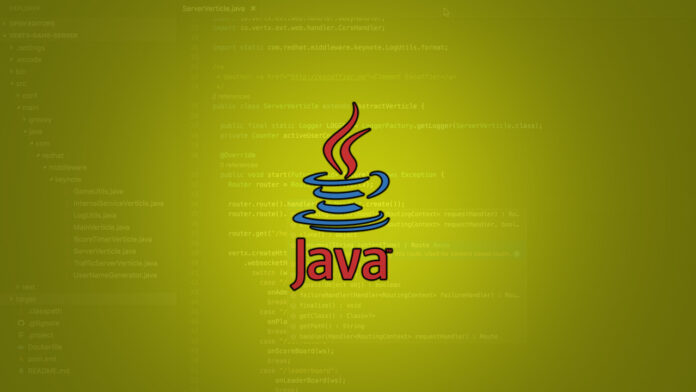Java is an object-oriented programming language that was first released in 1995. It was designed to be platform-independent. This means that code written in Java can run on any operating system or device with a Java Virtual Machine (JVM) installed. This makes it an ideal choice for developing applications that need to run on multiple platforms.
One of the main advantages of Java is its robustness. It has a built-in memory management system that automatically handles tasks like garbage collection, which helps to prevent common programming errors like memory leaks. Additionally, Java has an extensive library of pre-built classes and functions that programmers can use to make their code more efficient and maintainable. That said, to become a successful Java programmer, there are several key skills you will need to master. These include:
1. Understanding Java Syntax and Data Types
Java has a syntax similar to other programming languages like C++ and C#. However, it has some unique features that can take some time to master. For example, Java is a strongly-typed language, meaning you must declare all variables with a specific data type before utilizing them. Ultimately, understanding the different data types available in Java and how to use them correctly is essential for writing effective code.
2. Object-Oriented Programming in Java

Java is an object-oriented language, meaning that it is based on the concept of objects. These objects are typically known as instances of classes, which are user-defined data types. Therefore, understanding how to create and use objects as a Java programmer is essential for building complex applications.
3. Best Practices for Coding in Java
As with any programming language, there are best practices that can help you write more efficient, maintainable code. These include using meaningful variable and function names, commenting on your code to make it more readable, and following a consistent coding style.
4. Debugging and Troubleshooting in Java
Debugging and troubleshooting are essential skills for any programmer. Java provides several tools for debugging, including the Java Debugger (JDB) and Integrated Development Environments (IDEs) like Eclipse and IntelliJ IDEA. Learning how to use these tools effectively can save you a lot of time and frustration when trying to diagnose and fix problems in your code.
5. Tools and Resources for Java Programming

Many tools and resources are available to Java programmers, ranging from text editors to full-featured IDEs. Some popular choices include:
- Eclipse: A free and open-source IDE widely used in the Java community.
- IntelliJ IDEA: A commercial IDE that offers advanced features like code refactoring, code completion, and version control integration.
- NetBeans: A free and open-source IDE that is easy to use and offers a wide range of features.
In addition to IDEs, many online resources are also available for Java programmers. Some popular choices include:
- Oracle Java Tutorials: A series of tutorials provided by Oracle that cover everything from basic syntax to advanced topics like concurrency and networking.
- Stack Overflow: A community-driven question-and-answer site where programmers can ask and answer questions about Java and other programming languages.
- GitHub: A repository hosting service that can be used to store and collaborate on code projects.
6. Strategies for Staying Up-to-Date with Java Advancements
Java is constantly being updated, with new features being released regularly. So, to remain up-to-date with advancements in the field, there are several strategies you can use. Some of them are listed below:
Attend Meetups and Conferences
Attending meetups and conferences is an excellent way to remain up-to-date with the latest advancements in the world of Java programming. These events offer opportunities to learn from experts in the field, network with other programmers, and get hands-on experience with new technologies.
Read Industry Blogs and Publications
Many industry blogs and publications cover developments in the Java community. Some popular choices include JavaWorld, InfoQ, and DZone. Reading these publications can help you stay informed about new tools, techniques, and best practices.
Take Advantage of Online Communities
Taking advantage of online communities such as Twitter, Facebook, and Instagram can be a great way to stay up-to-date with the latest advancements in Java. These communities offer opportunities to connect with other programmers, ask and answer questions, and share knowledge and resources.
7. Tips for Landing a Job as a Java Programmer

If you’re interested in becoming a Java programmer, there are several tips you can follow to increase your chances of landing a job in the field:
Build a Strong Portfolio
Having a strong portfolio of Java projects can help you stand out to potential employers. Consider building a portfolio website that showcases your skills and experience and includes links to any open-source projects you have contributed to.
Network with Other Programmers
Networking with other programmers can help you learn about job openings and build relationships with potential employers. So, consider attending meetups and conferences and joining online communities where Java programmers gather.
Practice Your Interview Skills
Giving interviews can be nerve-wracking for even the best of employees. However, practicing your interview skills will allow you to feel more prepared and confident in your abilities. Consider practicing common interview questions with a friend or mentor, and be prepared to talk about your experience and skills.

The Final Words
Becoming a successful Java programmer requires a combination of technical skills, best practices, and a commitment to staying up-to-date with advancements in the field. By mastering the key skills outlined in this article, staying informed about new tools and technologies, and networking with other programmers, you can position yourself for a rewarding career in Java programming.







